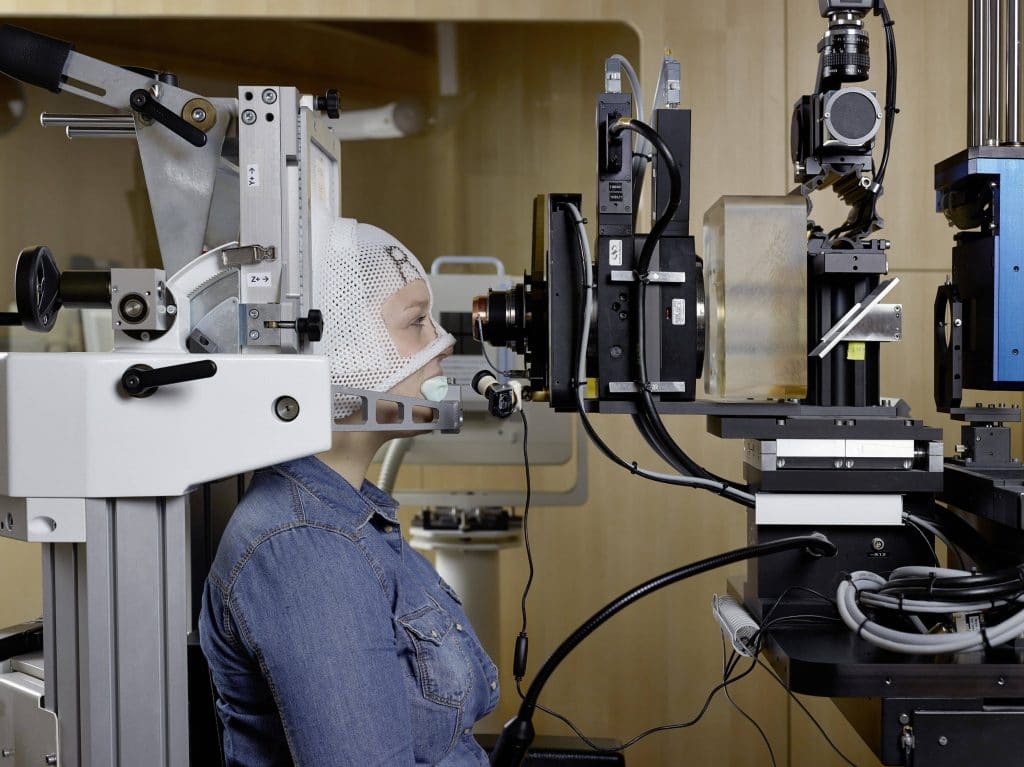Dose accumulation and uncertainty estimation
Planned secondments: UMCG (Netherland), University of Liubjana (Slovenia) and Cosylab (Slovenia).
Project description
As part of the adaptive process, new volumetric images of the patient are acquired every day, immediately prior to treatment. In order to accurately record the treatment dose delivered to the patient, it is then necessary to accumulate the daily fraction dose distribution on a common anatomy. For this process a deformable image registration (DIR) between each daily volumetric image and the reference image has to be performed. Although there are many DIR algorithms available nowadays, this task is inherently ambiguous, in that there are many different solutions to the DIR problem between any two data sets, none of which is necessarily correct. Consequently, the dose accumulation is also inherently uncertain.
In particular, as the uncertainty in the DIR algorithm is related to the lack of features in the data sets to be registered, our hypothesis is that it is possible to correlate measurable parameters of image quality to DIR uncertainty and finally to the corresponding dosimetric uncertainties. The main goal of the PhD project is to recognise regions and treatment plans with a reduced sensitivity to DIR uncertainties and with an increased robustness of the accumulated dose.
This candidate will address this (i) by improving the quality of the DIR algorithm and (ii) by developing a visualization tool to guide the user to the selection of the treatment plan more robust to (i.e. less affected by) DIR uncertainties.
The project will be mainly carried out at the Center of Proton Therapy (CPT) at the Paul Scherrer Institute (PSI), supervised by Dr Francesca Albertini. The PhD degree will be awarded by the Swiss Federal institute of Technology Zurich (ETH Zurich), under the supervision of Prof Antony Lomax.
The CPT is the world leader in the development and clinical implementation of pencil beam scanning and Intensity Modulated Proton therapy , both of which have been pioneered at PSI. The PSI is the largest research institute for natural and engineering sciences within Switzerland. Cutting-edge research in the fields of matter and materials, energy and environment and human health are there performed. ETH is one of the universities in Europe which focuses most intensively on research. As such, the PSI in combination with the ETH provide a unique possibility to combine high level of research with technological developments and transferable skills.
For more information concerning the research project please contact:
Francesca Albertini


Andreas Smolders
Early-Stage Researcher at Paul Scherrer Institute – PSI
I am Andreas Smolders, 25 years old, Belgian, and currently doing a PhD in Medical Physics at the Paul Scherrer Institute, under the supervision of Francesca Albertini. My main degree is a Master in Mechanical Engineering, but I also studied Economics and Artificial Intelligence. I am an adventurer, always looking for new challenges, both professional and personal. I love the mountains, skiing, hiking and climbing, which, to be honest, did count in the decision to come to Switzerland.
My research focus is on deformable image registration for daily adaptive proton therapy (Dose Accumulation and uncertainties estimation). We try to develop (machine learning) models to predict the uncertainty associated with registration, with the aim of taking this uncertainty into account when deciding for the optimal treatment for the patient. We hope to have implemented some of my work in the clinical routine by the end of my PhD. Speaking of impact, that counts.
I chose this PhD because proton therapy is an innovative and highly technology-driven branch of medicine. You can have a positive impact on severely ill people, whilst working on cutting-edge technology and state-of-the-art research. Having the best understanding of the problem and finding the most creative solutions will result in a significant improvement in the quality of life of our patients. That makes it easy to start working every morning!

Paul Scherrer Institut
PROJECT BENEFICIARY
The Center for Proton Therapy CPT at the Paul Scherrer Institute PSI is the world leader in the development and clinical implementation of Pencil Beam Scanning (PBS) and lntensity Modulated Proton Therapy (IMPT), both of which have been pioneered at the PSI.
